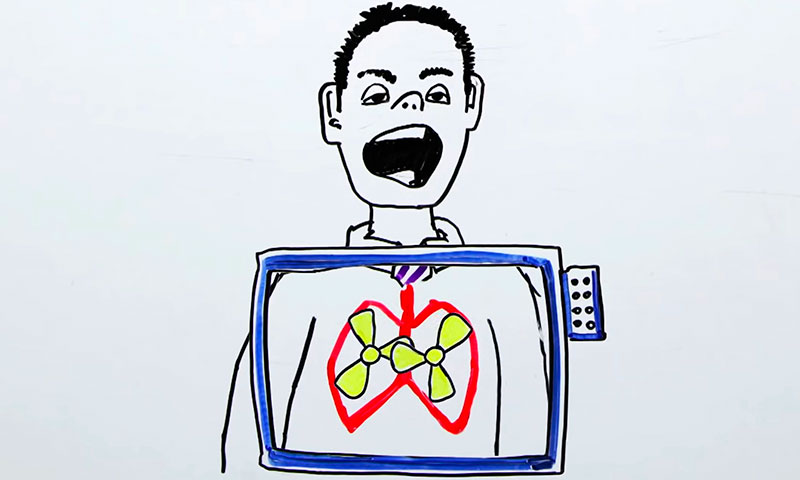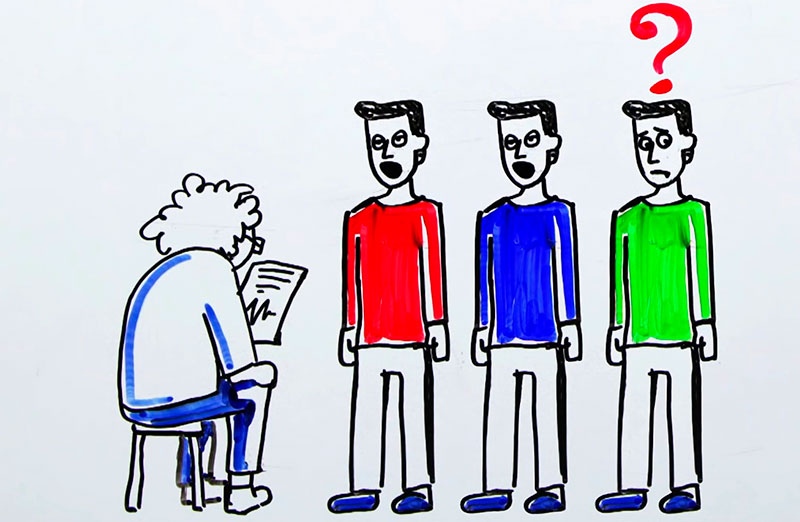Everyone yawns. And it starts long before our birth—in the womb. Different circumstances get people yawning: we are tired, or bored, or there is a lack of air, or something else. Understandably, we're overwhelmed with questions about yawning. What do we need it for? Why do people yawn when someone else does? Many experts from different fields are working to find more data and get to the heart of this phenomenon.

The reasons differ greatly: to get fresh air in the lungs, to cool the head, or to relieve fatigue.
No, it's not. It's just a reflex. Well, a strong yawn can lead to your jaw getting dislocated, but it's an extremely rare thing, though. Besides, yawning can indicate that your brain is not getting enough oxygen, and this is something more potentially harmful.
It's all about empathy. It's a kind of fellow feeling when you want to provide "psychological support" to a tired friend of yours.
This happens because of muscle tension: our facial muscles stimulate our tear glands, making us cry. The number of tears can vary.
Surprisingly, scientists have yet to determine for sure why! There are various theories about yawning, including psychological, physiological, and others, but none give us an absolute answer.
The majority of people believe that sleepiness is the cause. At this point, our brain instructs our bodies to perform significant lung ventilation by taking deep breaths. A fair share of fresh oxygen-rich air gets us to cheer up for a bit without having a nap while getting rid of extra carbon dioxide in our blood.
This is not the only reason we yawn. Yawning also helps cool your brain down. There is a certain temperature at which our brain is most effective. And our body doesn't like changes. A great deal of air lowers the brain’s temperature a bit, increasing its performance.
Many people associate yawning with stress. Sounds quite plausible, right? Thus, the Bournemouth University researchers proved that when we yawn, our body produces cortisol—a stress hormone. Eventually, this contributes to our well-being: the body gets more oxygen to cope with the increased burden, and the muscles, on their part, get activated to respond instantly. There is even information that athletes get drowsy just before getting on the field. This is also what skydivers feel before the jump.
This explains why we start yawning during a conversation. And it may have nothing to do with feeling bored or sleepy. You might as well be stressed out by the person you’re talking to. So your body gives the expected response.
Some people consider yawning to be a red flag. An ancient belief tells us this is the way our soul can leave our body. Or vice versa: a demon can get inside through a wide-open mouth. That's why people used to cross their mouths when yawning. Funny Legends, but do we really need to be afraid to yawn? Let's find it out.
Yawning itself is totally safe unless it is too big. In that super rare case, a person may suffer from a dislocated jaw, a problematic outcome difficult to handle without the assistance of a traumatologist.
Plus, yawning can be a sign of certain diseases. For example, it indicates brain hypoxia, which often leads to really bad health issues and is better prevented by visiting a doctor. Notably, people with a weak immune system yawn way more often than others. Overly deep and frequent yawning may signal diabetes, stroke, or an adrenal disorder. Hence, our advice: although you may find it quite ordinary, do not ignore too much yawning. Rushing to the doctor because you yawned several times in a row is also not a good idea!
This notion is not new: one yawning person is able to make the whole group automatically yawn. And it's not only a visual thing. You can make another person yawn even during a phone call. So why does it happen?
The first thing to say here: this is not only a human feature. Many monkeys, cats, dogs, and some other animals have the same behavior pattern. Moreover, a dog often starts to yawn by looking at a human's yawning. And it's a two-way effect! But there is a problem with reasons as here we deal with psychology—not that accurate science with a bunch of hard-to-prove theories.
There is a version that we inherited yawning from our ancestors, who once lived in tribes. When tired, the weakest members of the group started yawning. Seeing this, the strong individuals also yawned and felt tired, too. This meant it was time to stop and take a nap. Thus, the strong ones did not leave the weak behind. This added to group cohesion and increased their chances of survival.
This theory can also be strengthened by the following fact: yawning is more likely to be contagious when coming from close people than from strangers. Moreover, you're more likely to yawn after your family members than after people you just know. Interestingly, people with ASD (Autism Spectrum Disorder) are free of this effect. Even if everyone out there starts yawning, people with communication difficulties won't want to yawn back. This confirms the social significance of yawning.
There is another interesting feature of yawning. It's very common for people to start crying while yawning. Tears are literally squeezed out of our eyes. It is quite strange - it would seem that these two phenomena are completely unrelated. That's why we want to get through it.
At least this feature is explainable as it deals with pure physiology rather than psychology. Yawning makes facial muscles tense up, putting pressure on tear glands, which, in their turn, secrete fluid. The more intense the pressure, the more tears. So a slight and graceful yawn causes eyes to well up with tears, whereas a huge, loud yawn causes a tear shower.
References: Links and sources